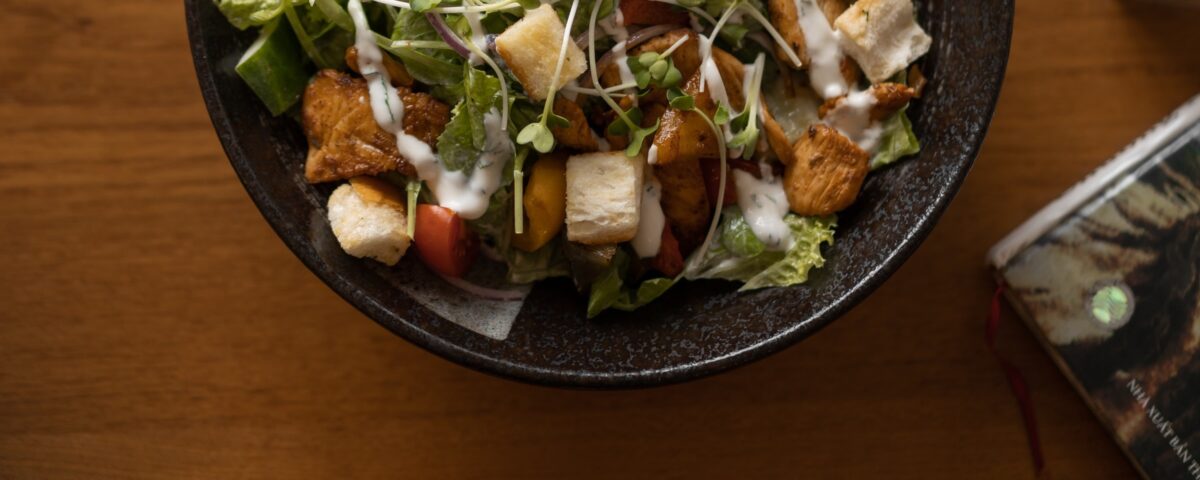
Connecting to Our Past Selves
September 8, 2021
Connecting with Nature
September 22, 2021This post is part of a series exploring how our various relationships affect our resilience. Check out other posts in the series: Resilience in Relationship, and Connecting to Our Past Selves.
Casual connections are the croutons of the resilience salad.
Just a few really good croutons sprinkled on top of a salad can make a meal special. If resilience was a salad – casual connections would be the croutons. Casual connections are those brief interactions you have with people as you go through daily life. The hello from a neighbor, a short line in an email hoping you are staying safe in stormy weather, a smile from a passing stranger. Researchers have found that these interactions make a difference in both those who give and those who receive.
On the other hand, negative encounters are like soggy or worse yet, moldy croutons on your salad! They can bring you down or disrupt your day entirely. One rude or hostile person can shake your mood or trigger a fight, flight or freeze response. Being ignored or snubbed in a painful experience even when the person ignoring you is a complete stranger.
Acknowledging the power of casual connections can help us be more resilient, and can help us build resilience in our communities. How can we be that person that makes a difference? Mostly it is by noticing those around us in a welcoming and friendly way. Casual encounters don’t have to turn into friendships; they can be simple brief encounters or light interactions over time.
One story of mine:
During a particularly stressful time I had a running joke with a stranger. She ran the self-checkout at my local grocery store, a place I went to several times a week. We always greeted each other and often discussed what was on sale. One day I jokingly said “You are always here! Do they ever let you out?” She looked right and left, dropped her voice to a whisper and said, “No. Do you think you could help me break out?” I widened my eyes and said in mock dismay, “No! It sounds too dangerous.” Done checking out, I went on my way. From then on, we continued the story line.
Me: “Was it bad? What you did to get locked up in here?”
Her: “You don’t want to know.”
…
Her: “Say hello to the sky for me.”
Me: “Next time I will get a cart and smuggle you out.”
It was our little joke that played out for months. I can’t say we were friends, but those encounters brought a bit of joy each week.
Other casual connections are one and done. The person who smiles and says hello, the toddler who is waving and saying “Hi!” to all who pass by, the friendly “Excuse me, I think you dropped this.” All of these make a difference in incremental ways. One researcher found that being the person who reaches out improves your own mood by 17% on average.
In contrast, social snubs can be painful particularly when they become cumulative. Feeling unseen or ignored, being treated as less than or deliberately insulted. These quick but painful aggressions, such as being called a racial slur or being misgendered, are the equivalent of moldy croutons. It is a short interaction, but can ruin the whole day.
So how do we build our resilience with this in mind?
When a negative act occurs, feel the feelings then decide how much of an impact you want it to have on your day. Our brains are wired to notice danger, so we tend to ruminate on the bad event. If it is a safety threat, then it deserves more time and energy. Reach out for support. If it is a random person with no filter, use the southern “bless their heart” and remind yourself of the positive things from today.
Some casual connections are ambiguous. I recall having a grocery clerk who I perceived as being rude. My aggravation was going up and I thought, “It is bad enough that I have to put up with all this construction noise, now the clerk is rude.” Before I frowned back at her, a little light bulb went off in my head. I looked at the frowning clerk and said, “How long have you been listening to that construction noise?” Her mood changed, she took a deep breath and said, “All day. My head is about to split.” By considering what her perspective might be, I shifted my response and made an ambiguous interaction positive. Finding opportunities to create positive experiences out of what life gives you will increase your resilience.
Actively build constructive casual connections. Offer a friendly, “Hello, your garden looks nice!” and engage in conversations about the weather. Be the person who does small acts of kindness. Welcome affirming interactions initiated by others. Saying, “hi” to the folks you see in your everyday routines will boost your mood and build up your ability to meet life’s challenges.
Positive casual connections are the croutons which enhance our resilience salad. They build resilience in ourselves, and in the communities we interact with, every day. What “resilience croutons” are already in your daily life?
Meanwhile – stay connected!
Share this post with a friend, say hi on the Facebook page or send an email to resilience@LearnModelTeach.com
Peace,
Laura A. Gaines





